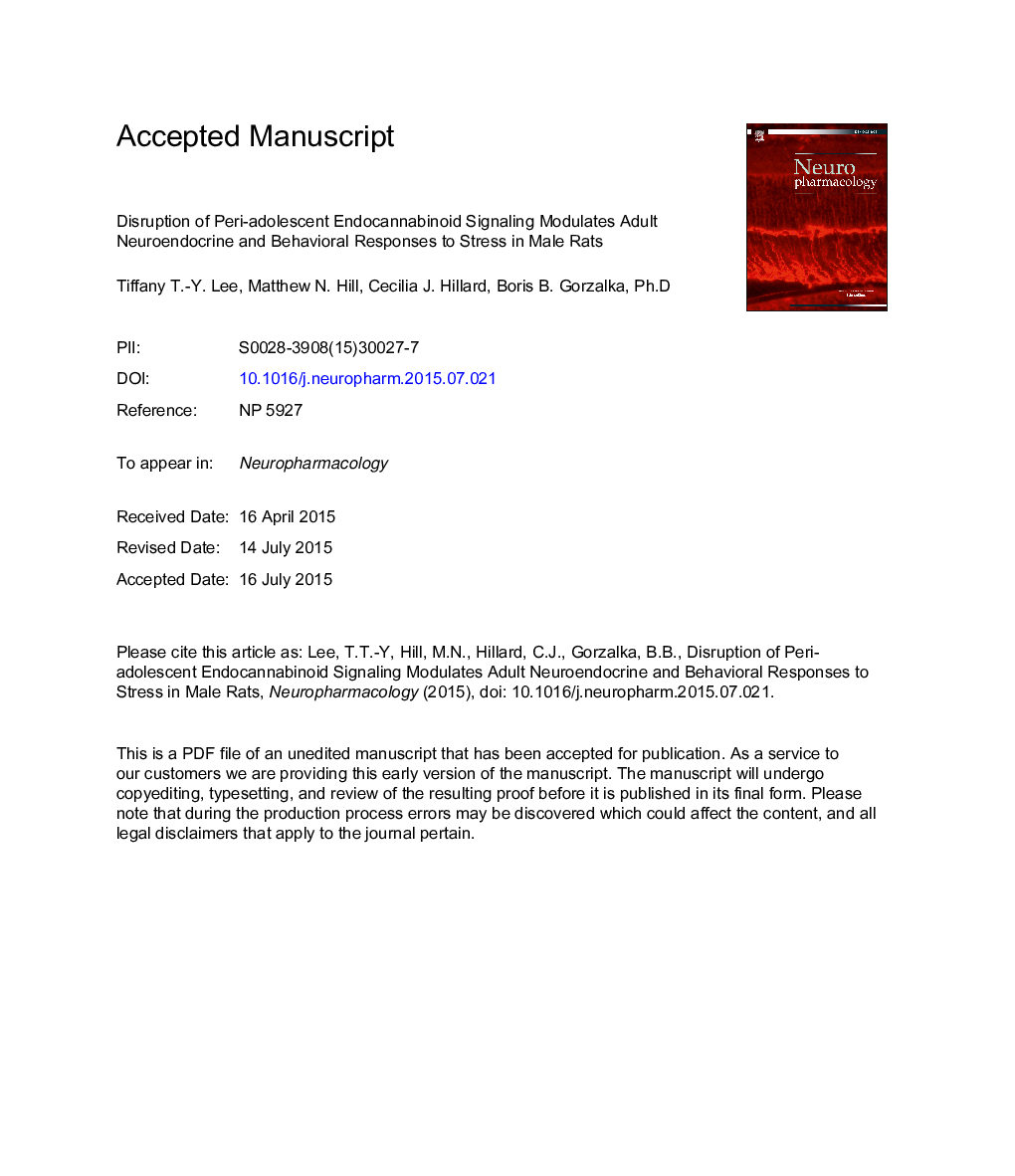| Article ID | Journal | Published Year | Pages | File Type |
|---|---|---|---|---|
| 5813759 | Neuropharmacology | 2015 | 45 Pages |
Abstract
The endocannabinoid (eCB) system is known to regulate neural, endocrine and behavioral responses to stress in adults; however there is little knowledge regarding how this system governs the development and maturation of these responses. Previous work has reported dynamic and time-specific changes in CB1 receptor expression, N-arachidonylethanolamine (AEA) content and fatty acid amide hydrolase (FAAH) activity within corticolimbic structures throughout the peri-adolescent period. To examine whether fluctuations in adolescent eCB activity contribute to the development of adult stress responsivity and emotionality, we treated male Sprague-Dawley rats daily with the CB1R antagonist, AM-251 (5Â mg/kg), or vehicle between post-natal days (PND) 35-45. Following this treatment, emotional behavior, HPA axis stress reactivity and habituation to repeated restraint stress, as well as corticolimbic eCB content were examined in adulthood (PND 75). Behaviorally, AM-251-treated males exhibited more active stress-coping behavior in the forced swim test, greater risk assessment behavior in the elevated plus maze and no significant differences in general motor activity. Peri-adolescent AM-251 treatment modified corticosterone habituation to repeated restraint exposure compared to vehicle. Peri-adolescent CB1R antagonism induced moderate changes in adult corticolimbic eCB signaling, with a significant decrease in amygdalar AEA, an increase in hypothalamic AEA and an increase in prefrontal cortical CB1R expression. Together, these data indicate that peri-adolescent endocannabinoid signaling contributes to the maturation of adult neurobehavioral responses to stress.
Keywords
Related Topics
Life Sciences
Neuroscience
Behavioral Neuroscience
Authors
Tiffany T.-Y. Lee, Matthew N. Hill, Cecilia J. Hillard, Boris B. Gorzalka,
